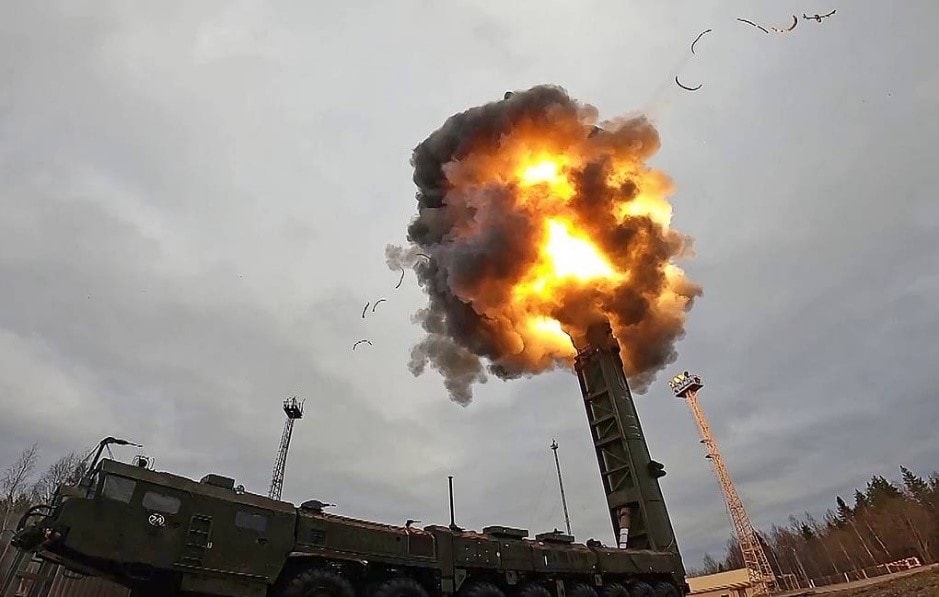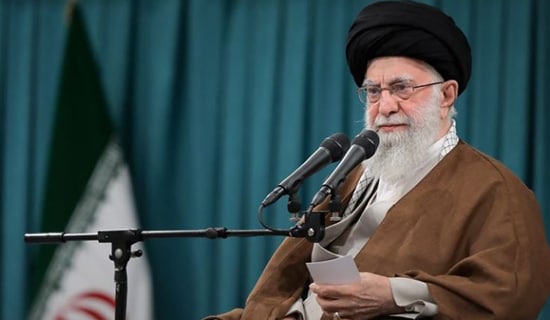In an interview with the Egyptian government paper Al-Ahram Weekly, Dr. Mohammad Reza Khatami, the leader of Iran's largest political party, the Islamic Iran Participation Front, addressed the problems facing reformists in Iran.
Khatami, who is currently serving as first deputy speaker in the sixth Majlis (Iran's parliament), was banned, along with his party, from contesting the recent parliamentary elections. Khatami, 45, is the brother of Iranian President Muhammad Khatami and is married to a granddaughter of Ayatollah Ruhollah Khomeini, and was one of the student leaders who occupied the U.S. embassy in Tehran in 1979. The following is the interview, conducted by journalist Mustafa El-Labbad: [1]
'Although We Lost the Election, We'll Be Back in Power Within Four Years'
Question: "I am sitting here with you in the offices of the Parliament, as your parliamentary term is still running. When do you think I'll be able to meet you here again?"
Khatami: "This question calls for a note of explanation. After Muhammad Khatami won the 1997 elections, it became possible to speak of effective political parties in Iran, of parties with political programs. Since that time, 20 parties appeared, including ours, the IIPF. All these parties participated in the elections but their political roles varied.
"Our party participated in the elections and in political action. We have 250 party offices all over Iran. Our supporters come from all sections of Iranian society. All these factors make it hard for the conservatives to eliminate our party.
"But in a country such as ours, where democratic tradition is still fragile, it is hard for parties to reach the public in the way that has become common in Western countries. However, we will pursue our political objectives against all obstacles, and will use novel methods and tactics. It is very crucial for us to be an effective party in the 2005 presidential elections. Although we have lost these [parliamentary] elections, I believe we can get back to power within four or, at the most, eight years."
Question: "The parliamentary elections have revealed divisions within the reformist camp between the radical wing that you represent and the moderate wing represented by your brother, President Khatami. What are your comments?"
Khatami: "To answer this, we have to consider the outcome of the elections. You will notice that the radical reformists have won the support and sympathy of the Iranian people, because of our position in these elections and because we were prevented from contesting them.
"The moderate reformists thought that there was a possibility for reconciling the conservatives and the reformers. This made them lose not just the elections but the street and the public.
"Look at the low turnout in major cities such as Tehran. This was a negative vote. The conservatives won 20 to 25 per cent of the vote. This means that 75 to 80 per cent do not like the conservatives and do not embrace their views. By going to the elections under the terms of the conservatives and by agreeing to the ban placed upon many reformist candidates, the moderates have lost a lot."
'The Iranians Want Neither the Conservatives nor the Moderate Reformists'
Khatami: "Despite losing the elections, we are in a better position. As we can see, in the light of election results, the Iranians want neither the conservatives nor the moderate reformists. Despite all that has happened, we are a popular political current."
Question: "Do you think that relations between the radicals and moderates in the reformist camp can be mended?"
Khatami: "The recent elections have exposed the divisions among various currents and even within the reformist current.
"I think that the answer to your question is yes – but only once the other wing has reconsidered its position, made a clear assessment about the reforms it really seeks in the political system, and admitted its defeat and the defeat of its ideas in the recent elections.
"But if this wing were to reiterate the same old ideas and tactics, I believe that the gap between us would be hard to bridge."
Question:"Supporters of your party belong mainly to the urban middle class. What have you achieved for them in the past four years of your government?"
Khatami: "Let's be realistic. No government could possibly resolve Iran's immense problems within four years. And yet we have changed the economic infrastructure in a clear manner, led the process of privatization, changed the structure of taxes, and increased government income. Exports have been increasing at high rates.
"The economy grew by eight percent annually. This is a great achievement for us. Also foreign investment increased in a steady manner. We have created 800,000 new jobs.
"However, the enormity of Iran's social problems eclipsed these achievements. Iran needs three million additional jobs. No government can resolve that in four years. We will find that the new conservative government will not be able to resolve the social and economic problems as well as foreign policy. They will lead Iran to real crises within a very short time."
Human Rights and Democracy are Integral Part of Our Foreign Policy; We Want Normal Relations With All Countries Except Israel
Question:"How do you envisage Iran's foreign policy, regionally and internationally?"
Khatami: "Our main idea is to normalize relations with all countries of the world except Israel. We want stability and security in the Middle East and do not wish to interfere in a negative way in the current peace process. We accept what the Palestinians accept.
"But we have faced many obstacles that the conservatives placed in our path. Despite the fact that we could not establish full diplomatic relations with Egypt, the relations between the two countries and their governments are very good. The way Egyptians view Iran has positively changed thanks to our policy, and this is very important.
"Should the conservatives continue to repress the Iranian people, Iranian foreign policy will not be successful, for no country wants to have relations with a government that oppresses its people.
"Therefore, human rights and democracy are integral parts of our foreign policy vision. The success we have achieved over the past four years is under threat from the conservatives. Furthermore, the conservatives are enemies of social freedoms."
Question: "Why?"
Khatami: "Because they believe that social freedoms are against Islam. They are against music, theatre, and cinema.
"It is inconceivable that they grant their citizens even a part of these freedoms. The conservatives are united in repressing society and their opponents. They are also unable to normalize Iran's relations with the world.
"If they were to allow social freedoms and improve their relations with other countries, we would welcome their steps. It does not matter who is to accomplish this – be it us, or them. We will support them if they do that."
'The Occupation of the Embassy Was in Response to the Reactionary Conspiracies Against the Revolution'
Question: "In 1979 a group of students, led by you, occupied the U.S. embassy in Tehran and took its staff hostage. Now, a quarter of a century later, how do you view that event?"
Khatami: "These were hard times in the history of our revolution and must not be judged by the standards of 2004. We have to go back to that time to assess the occupation of the embassy in a sound manner.
"The Iranians supported the revolution – 98 percent of them did, according to the referendum on the constitution of the Islamic Republic. Iran suffered from disturbances in various regions, in Baluchistan, Turkmenistan, and Kurdistan. Foreign conspiracies against the revolution were at their peak. The country was in danger.
"Who was behind these troubles and disturbances? The Shah, of course, and the army was pro-Shah, as successive coup attempts proved. And who was the Shah's main supporter? It was the United States, which plotted to suppress the revolution.
"It was impossible for us to stand still. The occupation of the embassy was in response to the reactionary conspiracies against the revolution. The revolutionary students who occupied the embassy wanted to hold the hostages for four days only, not 444 days.
"After the first four days of the occupation of the embassy, it was the revolutionary government that prolonged the hostage situation and conducted a negotiating process that led to the release of these hostages."
Question: "Are you saying that the government prodded the students to take such action?"
Khatami: "No, this is not what I meant to say. What I am saying is that the timing of the release of the hostages and the evacuation of the embassy was up to the government.
"Generally speaking, the taking of the hostages and the occupation of the American embassy are things that can be justified in the context of 1979."
Question: "The student leaders who carried out this operation are the leaders of the reformist current in Iran now, including yourself, Vice President Masuma Ibtikor, Mohsen Mirdamadi, chairman of the National Security Committee in the previous parliament and Ebrahim Asghar Zadeh, leader of the Islamic Iran Solidarity Party. Is this a coincidence?"
Khatami: "The Iranian revolution was a popular revolution and no one can deny that. The vast majority of Iranians supported the occupation of the embassy.
"Also, the domestic situation in Iran changed completely after this action was carried out, and all military operations hostile to our revolution ended.
"We are now in a similar situation. The student leaders took the right decision at that time, just as they do now, through their support for political reform and its proponents in Iran. They are revolutionaries in the true sense of the word. There is no contradiction.
"Reform is a revolutionary process."
Egypt and Iran: Promoters of Democracy and Freedom
Question: "Finally, what message would you like to address to the peoples of our region?"
Khatami:"Democracy is the basic demand of our peoples. Freedom is the main leverage of democracy, and the relations among the countries of this region have to change.
"Egypt has led Arab and Islamic countries, and still does, in the process of modernization and development. It is capable of consolidating democracy in our region. The peoples of the region, as well as civil society groups, parties and governments, have to keep in touch in order to exchange expertise and learn from one another. "This is in the interest of the region. We see the Egyptian people as a leading nation in the region. We do not deny their historic role and we look forward to cooperating with them for the benefit of a region that deserves better."
[1] Al-Ahram Weekly (Egypt), March 4-10, 2004.








